It’s a name that’s become synonymous with “post-punk,” and while many may know his name from his contribution with Jawbox – the reactivated punk band getting its start in the Baltimore/DC area – J. Robbins’ musical footprint far outreaches that of just one group. Before Jawbox, Robbins was a member of punk stalwarts Government Issue, and later, after Jawbox took its final bow, there were Burning Airlines, Channels, Office of Future Plans, and others. But wait! There’s more. Going hand in hand with his own musical repertoire, his constantly growing resumé as a producer/engineer
Earlier this year, Robbins released his first solo album, Un-Becoming (Dischord Records). No one expected it, and I’m not sure J. even expected to release an album filled with anthemic rock songs, tinged with powerful lyricism that’s all around, badass. I spoke at length with the singer / songwriter from his Baltimore-based studio, The Magpie Cage, where he recorded the album around the time of the album’s release back in May 2019 about the album and Jawbox.
You weren’t planning on writing a protest record but it seems you’ve balanced it with some delicacy. It isn’t forced and just seems to flow naturally. Lyrically what you’ve put together seems to make sense.
Thank you! Well, I think part of my mission was to make sense (laughs). Because in the past I’ve tended to sort of do things a little bit backwards. And that’s been kind of a fun way — it’s been a way that made sense to me, that sometimes I would write songs and they would come out of turns of phrase, or things that felt cool to sing. And then I would attach meaning to them — it was more like putting together a puzzle than it was, like, having a theme in mind or a particular thing.
I’ve written songs that were about things or driven by a particular person or thing. But I always would kind of couch them in weird ambiguities or language that was fun to sing. Or things where you know — it wasn’t important to me to be understood. It was important to me to make a kind of construction that was fun to execute, you know. And it had to make sense to me, but I was kind of excited that it could mean different things to different people.
At a certain point in the last few years, more and more, actually, I realized the songs that I really love and the artists that I really love, they’re not shrouding their intentions in obscurity. They want to communicate clearly. And that’s something that, it’s much harder to do. Which in my mind kind of makes it more worthwhile, in a way. And then part of it also — I was thinking about the lyrics of the record because I think of it as kind of a protest record just because the times are so insane, the world is so fucking nuts right now. Like, for example, the song “Firelight,” which I think is the second to last song on the record – I wrote that song really quickly and it was literally in response to when Donald Trump was bloviating about the football players, sports teams, people going down on one knee to protest institutional racism, right?
He was talking about disrespecting the flag, and all this hyperbolic bullshit about, you know… and I had an instant reaction. I was like “you know what, burning the flag is great. Let’s have a party. Bring the flag, we’re gonna burn it. We’re going to have a big bonfire, it’s going to be awesome.” And that’s what that song was like. It’s like I had to…
There are times in this kind of environment when you hear something like that or you experience something like that. And rather than just screaming, or posting uselessly into social media — at least if I write a song it’s like a catharsis, you know. Same thing with that song Citizen which was inspired by a lot of this stuff that, to some degree, like…
Theresa May is in there by name, because of things she said. She said — what’s the actual quote? I can’t remember who she was addressing, but she said, “If you think you’re a citizen of the world, you’re a citizen of nowhere”. And I was just, like, “you’re the Prime Minister of fucking England!”
In my whole time of growing up, since I was a kid. I lived through the last half of what seemed like the progress in the wake of World War II, where everybody was like “wow, let’s not almost blow each other up anymore — let’s not accidentally destroy the world. Why don’t we cooperate and see what we can do together?” And even as flawed as that might be, that was a virtuous idea in this country and in the zeitgeist, for like my whole life up until the last four years, when now it seems to have gone completely in reverse.
So those kinds of things are really like responses, but there’s other stuff in the lyrics — there are more personal things in the lyrics for sure, and it’s just that they dovetail thematically.
That song ‘Anodyne’ is inspired by an experience that my wife and I had with a sort of alternative medicine type guy. Our son has spinal muscular atrophy and his diagnosis when he was 6 months old turned our world upside-down. And we went to a lot of places looking for a way forward, to try and see what kind of a future he could have. Because conventional medicine really didn’t hold out much hope for us. And things could have been much worse in terms of what could have happened. But when we were going way outside the mainstream, there’s a lot of quackery out there. There are a lot of desperate people who are hanging their hopes on people who are ready to exploit that. And there are a lot of quacks that don’t believe they’re quacks, who really believe that they’re doing good in the world too. So that song was completely personal, but it’s absolutely appropriate to the moment, too, because it’s about being scammed when you think that someone is extending a hand to lead you out of the darkness.
It falls hand in hand with the way things are today, with medicine and how expensive things have gotten, how ridiculous things have gotten as far as that’s concerned.
Sorry it’s all in there, it’s bottled up, it’s coming out!
That’s fine, I can appreciate that. But let’s talk about — obviously you haven’t done certain things that you normally do, like tour all over the world. But with your son, how has that changed your life in that respect?
In a way, I couldn’t really answer that because as long as I’ve been a parent I’ve been a parent of a child with a severe disability, so that is just my reality. So I don’t really know. I’m also not, just to bring it back to touring, I’m not that young of a dude. I mean, I’m not old either. But it’s like, right around the time of the end of Burning Airlines I kind of… I’ll put it in a different way. When I was in Government Issue and when I was in Jawbox and for the majority of the time I was in Burning Airlines, there was nothing that I’d rather have done than go on tour. And although I still think that it’s great because I love to travel and I love to play music and I love to be in a different place with people with common interests — you know that’s the coolest thing ever about touring — not only are we in Berlin, but we’re in Berlin surrounded by other people who are speaking a different language but we’re also speaking the same language so we have a commonality, right? But in mechanical terms, right at the end of Burning Airlines I had a total 180 where I just, this is the point when I got married and I thought “the adventure is at home now”. I don’t think I would have been wanting to go… Touring is so great and then it also has that eventuality of feeling like you’re beating your head against a brick wall. I’m happy to do it, I love to play, but from that point onward I was never going to go and do 8 weeks in a van ever again anyway. But there’s a lot about being a parent in general that.. it makes you kind of be present in a different way that’s really great. So that’s definitely true in our case.
So has it become an easier balancing act now, between home life and music?
In a lot of ways, I suppose. I mean, when our son was born my wife and I — we have a band called Channels which is not active at the moment, but we never said the band was broken up. When our son got his diagnosis we were like, “We can’t be doing this thing now. We have one job which is to take care of our son, to see the way forward.” But for me, after a certain point — I think for her too — you can’t put aside your whole… if you have to be creative, you have to be creative, you don’t really have a choice about it. If you try to put it aside you’re going to be miserable. So over the course of a couple of years, it was trying to find ways to fit that stuff back in and it was extremely worth doing and it’s still a crazy balancing act. It’s actually insane to me that my life makes sense at all. I have a recording studio and I make records — none of this should work! But I think it’s amazing that it does, and it’s probably mostly a testament to, I guess, that we have a good family. We have a strong family.
That’s awesome, that’s the backbone of life, having a strong family.
It’s pretty nuts. But it’ll be cool I think, like for example, when we do these Jawbox dates in the summer, the first couple of shows – the second weekend is going to be in Philly and Brooklyn and we’re going use that as an opportunity for a short little family trip, too. So our son can go up the Empire State Building, and I’m not just going to get in the van and go and play a show. I’m going to travel with my family and then go and meet the band and do other stuff.
Well, that’s a pretty sweet deal!
It’s complicated. But anyway, that’s the idea is to try and make all these things harmonize.
With your new record, obviously you get pretty creative here. I’m sorry, I’m all over the place right now… On ‘Firelight’ you say you put that together really quickly, lyrically?
And musically too, that song kind of fell out really fast — it just showed up.
I really enjoyed the way you put everything together. Focusing on the red white and blue, and burning the flag — it’s just quick and concise. And ‘Abandoned Mansion’, I liked how you included the Edgar Allan Poe piece in there — it seemed to fit perfectly.
It’s really about Baltimore. Baltimore is where I live. So it’s really inspired by Baltimore. And honestly, I love Edgar Allan Poe, and Poe’s a Baltimore thing. And then I thought, the imagery in that poem has that particular line about Death looking gigantically down from the tower. It resonates with me — it could mean a lot of different things. And that image could just as much be like an image of this kind of … I think in the context of that song it captures…
It’s weird like Baltimore has this — I love it here and part of the reason I love it here is it’s just always managed to stay outside the mainstream of whatever’s happening on the East Coast, it’s like Baltimore is kind of the city that people don’t quite remember?
And it’s a city where gentrification, all the kind of shit like the super development monster late-capitalist development wave that’s overtaken basically the whole rest of the East Coast, where it’s impossible for a normal person to live in a city any more. If you live in a city you’re in total squalor or you’re rich, and there’s nothing in between. But Baltimore, knock on wood, always seems to elude that wave of gentrification. If that’s success — if the so-called revitalization of the city into, you know, there’s a Whole Foods on every corner and homeless people are nowhere to be seen because they’ve been swept up some unknown place? Baltimore just eludes that every time. They grasp for the brass ring and they fail, and it lands with a thump. And I love that and I want it to always happen because that’s the kind of city where people have latitude to do creative things. And be slightly less in the rat race, you know?
Of course.
So that’s what I thought like that Poe image was a bit of that spirit of “you’re never really gonna make it” (laughs), you know?
It’s difficult. I grew up in New York and now I live in Arizona. And it’s kind of horrible what’s happened to the city, because it’s like you said — either you’re rich or you do live in squalor. And I’ve just known so many people that although they may spend time together, hang together, and do things together, they’re on opposite sides of the spectrum.
But I guess that’s just life in 2019.
I don’t know. But it’s definitely a thing I really appreciate about Baltimore. Because as hard as the city tries to join that model, that paradigm, it just can’t quite get it together to use that model of success. And it’s cool, because if New York City was in 1975 like it is now, it would not have been the birthplace of punk. Nobody would have been able to do shit.
I find it hard to believe that being so close to Washington DC, that Baltimore can rise above that.
It’s such a complicated city. But that’s what’s great — it still has the ability to be complicated. Whereas I think as things get more gentrified they get more homogenized. And those complexities get washed out.
On your album, I’m not sure if I’m pronouncing this correctly, “Kintsugi”?
Yeah.
That one threw me off. It’s a beautiful track but I didn’t expect it. Because you have all these anthemic tracks, some sounding like a call to arms. And then you have this one — the electronic sounding drum pattern, the repetitive dissonance, which I guess is guitar?
Well, it’s a lot of it — the weird little… My friend Pete who played drums on the record calls it the “feeding the baby velociraptors” song. All those weird little gurgly twittery sounds are actually magpie songs that are pitched at different pitches.
Oh okay.
It’s a loop of magpie cries.
What was the initial reasoning there to include an instrumental?
When I decided that I was going to make a “J Robbins album” instead of starting another band or whatever else I might have potentially done, I don’t think that I had an overall vision of what the record would be.
But I definitely had an idea of what type of songs I wanted to try to write, not thinking that I was working towards a record particularly. But I know I didn’t want to start out writing for the guitar in a way that was trying to outsmart anybody, which I think is something — I hadn’t done it consciously before, but in the past, I’ve always had this thing about… I don’t want to take anything for granted in the writing on the guitar parts and stuff. And in the past… well basically what I wanted to do — I wanted to not have to worry about the guitar, and just use the guitar as a venue for setting up the harmonic language of the songs — it just supports the melody and the words so that the song is totally portable. I could play with a band, I could play it if you’ve got a ukulele and you want to hear a song. You know what I mean? I could play it on piano, I could play it wherever. Because the details of what the guitar is doing are not as important as what the overall song is. So, it’s wanting to write simpler and more direct songs, instead of trying to outwit anybody with how clever I want them to think I am, which is probably something I’ve been guilty of before, which I have to admit to myself that I had that in my mind. I just wanted to write a good song and keep it simple. And from there you can develop it as much as you want, but the baseline of the thing is really direct. So I knew that I wanted to write a bunch of songs like that. And then I wrote a bunch of songs and was like, “Well, this is a bunch of songs that can hang together and really be an album”.
But then some of the other songs on the record aren’t like that and I also was thinking, “If it’s my record I can do whatever I want”. And I thought it would be nice to have something that was a relief from that kind of sound, more of a direct kind of sound, and not so much of a loud rock tune. And I had “Kintsugi” sitting around that I had it together years ago just for fun — I had put together the drum loop. And I was looking at YouTube videos of magpies because the magpie call is so weird, it’s the weirdest birdsong. And I had collected a whole bunch of these things and I was just playing — it was something that came out for fun. So I had it for a couple of years and it was just sitting there and I thought “I don’t know where this is going to go”. It’s kind of a cool little foil for the other songs on the record if you get to the end of Side A, and then suddenly you’re in this weird electronic garden with weird magpies. It may not be logic, but it’s logic to me.
I get it. Getting back to the whole protest aspect of the album, I also think that a lot of these songs could be viewed as songs for the working man as well. Even, “Soldier On.” You start that off with “the rich embrace their destiny and the poor are stuck with Fate”. And I listened to this and other songs and I’m like “this could be my life or just anyone else’s, sitting at a desk working for someone else and missing out on a lot”.
I’m not going to give Donald Trump for anything. But I do think part of the problem — I’m going to sound so pretentious when I say it, too — part of the problem right now is that the one percent, a lot of these people that are running the world, or trying to run the world right now, really believe that they were destined to have what they have. That it’s some aspect of virtue in them that they’re obscenely wealthy. And people are really stuck. I think we’re in a climate where we don’t believe that things can be any different than they are. And if you’re rich, you’re like, “of course they can’t be any different, because it was meant to be!”
Trump is exactly this way, he’s like “I’ve got good genes, it was Fate for me to be ruler of the free world”. And the flip side of that is — if you’re on the bottom, so to speak, well, you know the unspoken wisdom is it must be your destiny to be there. I mean, that is how somebody like Betsy DeVos thinks. That’s how somebody like Erik Prince thinks. That’s how all these motherfuckers think. But the point, for me, for that song, it’s self-therapy. It’s me just being, like: “Shit can get really difficult and challenging. And the only way that you get to a better place is just putting one foot in front of the other”. If you give up, if you’re in a shitty place and you give up, then you end in a shitty place. So that’s totally what that song is about, and it’s completely just me talking to myself, in the context of the world that is taken over by monomaniacal rich fucking assholes.
But I mean, in all honesty, it’s completely like a pep talk to myself. Like “no, you’re going to get through it one step at a time”. That’s what ‘Life is Long’ is about — things have been bad before and they’ll be good again, but you have to keep going.
I mean, it might have been self-therapy for yourself, but a lot of people — I think — are going to relate to that. A lot of people are going to listen to that song, listen to the words, and they’re just gonna say “Shit, that’s my life! He’s right, I have to keep going”. Because I know so many people that have just given up and have stopped trying. But yeah, like I said — this song, a lot of people are gonna relate to that.
That’s a wonderful thing to imagine. My whole point is, in this case, to try to communicate and not be guarded or sort of shrouded or too clever or anything. It’s just to try and make some kind of connection.
Right. And I think you’ve accomplished that here, with the album as a whole.
That’s crazy.
That’s my humble opinion here.
Well, I’ll take it. I appreciate it.
Now let’s go back to Jawbox. Now, you guys are touring this summer, doing a brief tour. I guess we can say it’s a new chapter of the band?
I don’t know exactly how I characterize it. Because we don’t really know what we’re going to do creatively going forward — it’s conceivable that we could work on new stuff, but basically we’re up against the reality that we’re four people who live in different places and have insanely full lives already.
So the time that we can devote to doing this has really all been about making sure that we are a good band and that we can execute the songs that we already wrote. And live up to what we want — we want to be as good a band as we thought we were back then, if not better. And I think it’s motivated… when Jawbox broke up, all of us tried to move forward from it in some way. Not to disavow it, but just to be like “okay, that’s a thing that ended and now we’ve got to go to the future.” So for some of us it was about leaving music aside for a while, and starting a career or starting a family or doing more quote-unquote “grownup” things. And for a couple of us… for myself I was like — now I’m going to start a new band. At that point I was like, I started Burning Airlines with Bill because I thought we could have a totally different collaboration if we were not trying to fill the same space with our voices and our guitars and our ideas. It was a very competitive creative process in Jawbox, and once we delineated that and Bill played bass and I played guitar we really complemented each other. It was really fun and cool to work together.
But it was all about going forward, and Zach didn’t want to be involved with the loud guitar rock or vocals. He started playing in instrumental bands and being more of a bandleader and composer, doing improvisational music. But he was very much directing what was happening with his music. So it was all moving forward, and not leaving Jawbox behind entirely, but not wanting to look back. And over time I think, like for me, for me to start playing solo shows was insane — I didn’t think it was something I would ever, ever do. Like 20 years ago if you’d said “play a solo acoustic show” I’d have been like, “you are fucking insane”. Whereas now I love it, it’s one of my favorite things, and it’s part of the reason the songs on my record are the way they are, because I want to be able to play them with just a guitar, and sing them in a room to somebody. And you can’t do that with Jawbox. A lot of it, you just can’t.
The rhythm section is more than half the song — weird rhythms and dissonances and sheer volume and noise is part of the thing. But my point is, I did start trying to play some Jawbox songs. I started going back and instead of being like “this is a thing that I did when I was a lot younger, and it was a stepping-off point for where I really want to go”, I started looking back at it and going “actually, some of these songs are really good”. And sort of looking back at it a bit more nostalgically, honestly. And Zach was doing the same thing at the same time. And I think we all were doing that a little bit, just coincidentally. And Zach was the one who was, I think, having, trying to stretch as far as he could stretch musically — he just realized that this was good stuff, and it wasn’t just something from the past. It was really a part of him. And we all kind of got the same idea at the same time and started talking about it. He was the one who really made it happen for us to get together in the same room and start playing songs. And also because we have other contemporaries who are sort of doing the same thing. There are bands that are re-forming and revisiting what they did when they were younger. And there’s a big difference between, saying personally — like, me as a twenty-something person versus me as a fifty-something person. I think for all of us it’s true — we’ve all been through a lot of stuff in our adult lives, and I think that we’ve done some growing. And so it’s nice to go back to this stuff with a more grownup attitude and more respect, and less kind of freaking out. I mean, I don’t know if everyone looks back at their twenties and goes “oh my god, I was just freaking out the whole time”. But that’s definitely true for me. And so we were like “what if we went back and did this?” And we’re all still friends. But our friendship is two decades deeper than it was when we were a band. So that’s really the idea. And then there’s a little bit like, if we talked about it and talked about it and talked about it, we could keep kicking the can down the road, and then we would definitely all be too old to ever do it. So let’s just fucking do it. Are we going to do it or are we not going to do it? Alright, let’s go!
So now you’re doing it. But, you know what? I also want to reference something else off the album — Stella Vista. Now I know you said you weren’t trying to be clever.
But was that a Big Boys reference there in that song?
Not consciously.
Because there’s one part where you’re singing “it’s in your bloodstream, flowing round.”
Oh, like “Sound on Sound?”
Yeah. There I was thinking, now Jawbox covered that.
(laughs) No! But you know Sound on Sound recording is one of the earliest forms — it’s not multitracked. It’s not where you have separate tracks, it’s where you just build up layers on top of each other, on the same track. So it’s a reference to that — it’s like Sound on Sound recording. And I don’t know what the Big Boys song refers to.
I think that was a love song or something like that.
It’s definitely a love song. I don’t know why “sound on sound” worked for that song, except that it sounds cool. To me it’s more like the idea that you have these — ‘Stella Vista’ is a little bit more of a weird song. That’s more of an out-of-left-field song. It’s about that question of can you overcome your genetics, ever? Can you overcome things that are imprinted on you from history? And a little bit, talking about the idea of epigenetics, which is really fascinating to me, you know, the idea that from something that happened two or three generations ago in your family, an event — not a physiological genetic thing, like a predisposition.
You have a genetic predisposition to diabetes, or whatever it is, that’s one thing, but that also actual events that happened outside your body. Like if your family went through a famine, or you had some violent event, or people who survived the Holocaust, or who had to flee, who were refugees and such — their genetics are impacted in some way. And there’s a whole science about this, that’s really fascinating. Like something completely from outside — an external event can actually make an impact on your genes. I just think about it in terms of my history and my family on both sides — it’s probably not that much more fucked up than anyone else’s — but, these things imprint on you. It’s not just in the genes, it’s in the way that they…
They think, they act?
Yeah, it’s just behaviors, it’s your environment. And you spend the whole rest of your life trying to get out from under that. In some cases, anyway.
I completely understand. And now I’m going to have to look more into that. There are things in my own life that I never thought about. But now I’m really conscious of that! But one last thing I wanted to ask you — your inspiration. Your inspiration growing up, how does it differ from your inspiration today? Both musically and lyrically.
I don’t know…
Is that a bit too much?
I don’t know, because it’s a continuum for me. The biggest difference to me is that when I started out trying to write songs, I had no life experience on which to base anything, really. And I was really driven by this perverse idea that if you made it too simple or you gave too much away, that you were being lazy or that it wasn’t good. And so everything had to be a little bit of a puzzle to me, even if it doesn’t sound that way. But over time I’ve started to realize that the times that it ever connects with anybody — most of the time it’s the simplest ideas that connect with people and that’s where real communication and connection actually occurs. And then in the interim, things have actually happened in my life. So I have things to talk about. But I mean, maybe it’s not all that different because, to me, it’s a continuum.
I appreciate how forthcoming you were with your lyrics and the whole nine yards.
It’s quite amazing to me that anybody gives a shit, honestly. So I appreciate it greatly.
You have no idea how many people do appreciate it and appreciate what you do, and what you continue to do.
I am going to continue to do it probably ’til I keel over, so I’m glad somebody’s listening.


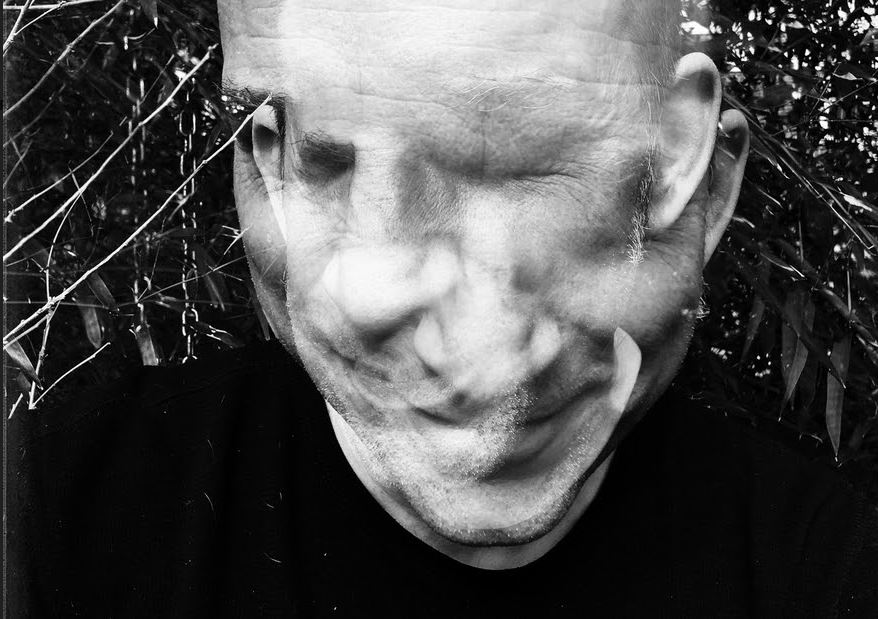
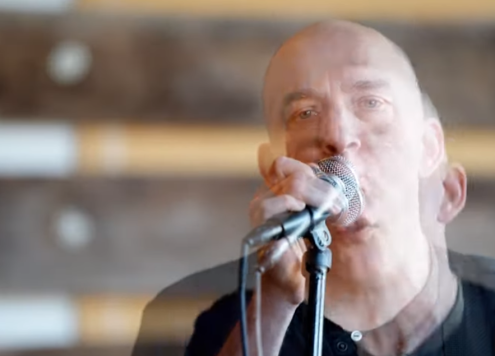
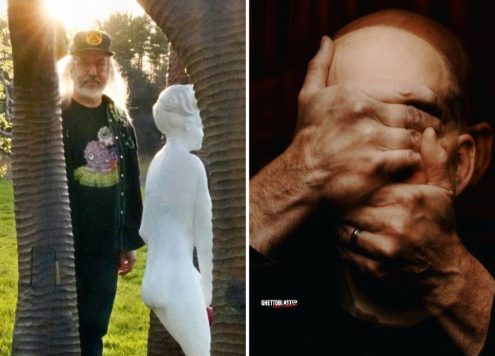
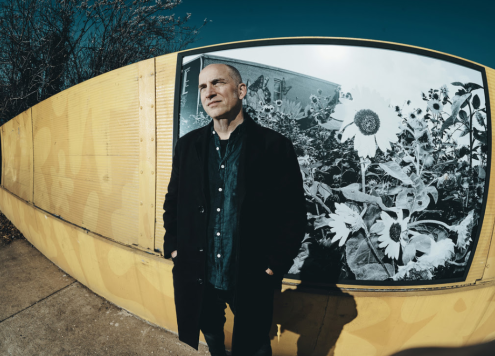

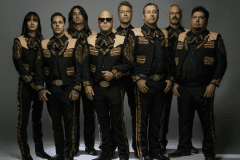
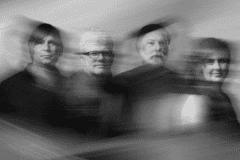
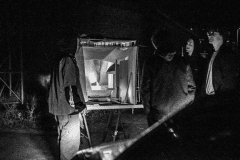

Social Media